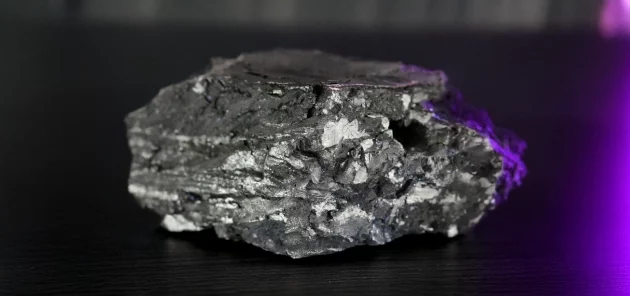

Ukraine has significant reserves of rare earth metals, which are critical for electronics, defense, and energy. The agreement with the United States provides for the involvement of investors in the extraction of these resources, but it is important to ensure transparency and security of the process. OSINT (open source intelligence) helps analyze contractors, assess their reputation, and prevent threats such as corruption or environmental risks. Find out how open analytics contributes to the security of Ukraine’s mining industry.
As of March 2025, official sources do not disclose the detailed terms of the agreement between Ukraine and the United States on the development of mineral resources. Initially, this project was presented as a mechanism for compensation for military assistance provided to the United States during the Russian-Ukrainian war.
According to the published data, Ukraine and the United States plan to create a joint investment fund that will finance post-war reconstruction. According to the concept, the Ukrainian side will transfer half of the income from the development of deposits, in particular mineral, oil and gas resources. The funds received will be used to stimulate the economic development of Ukraine. It is expected that American companies will be involved in the extraction of rare earth metals within the framework of the agreement, however, the specific list of contractors and detailed terms of cooperation are still unknown.

Ukraine has significant deposits of rare earth metals, including titanium, beryllium, zirconium, and lithium, but their extraction requires large financial investments and the use of modern technologies. That is why the development of the deposits requires the involvement of American investors.
There is currently no official information about which companies will receive the right to extract rare earth metals in Ukraine. Presumably, this will be a combination of state-owned and private mining enterprises from the United States. At the same time, none of the parties has yet specified the standards and criteria by which American contractors will be selected to participate in the implementation of the agreement.
Even before signing the rare earths agreement, Ukraine needs to implement control mechanisms that will guarantee transparency and safety of resource extraction. A key task is to thoroughly vet all American contractors who apply to develop mineral deposits. If the process is deprived of proper control, Ukraine may face the following risks:
National security threats. There is a risk of Russian agents infiltrating the sector, who could use it to destabilize the country. This could lead to economic and political threats.
Corruption schemes. There is a possibility of bribery, tax evasion, and inefficient resource management by extractive companies.
Depletion of natural resources. Ukraine could lose out if the terms of the deal are unfavourable and resources are sold abroad without proper control.
Environmental risks. If contractors ignore environmental safety standards, this could lead to deforestation, soil and water pollution, which would have long-term consequences for the environment.
Monopolization of the industry. If one foreign contractor gains excessive influence on the market, it could dictate prices and restrict access to resources. It is important to provide mechanisms for protection against monopolization.
Violation of workers’ rights. Ukrainian workers may suffer from low wages, poor working conditions, and abuse by unscrupulous companies.
To avoid these threats, it is necessary to introduce effective audits, monitoring mechanisms, and strict selection of contractors. Only careful control will ensure that the deal will bring real economic benefits to Ukraine and preserve national interests.
The use of OSINT (open source intelligence) is an effective and cost-effective method for verifying companies engaged in the extraction of rare earth metals. For the American side, this is an opportunity to maintain the reputation of a reliable partner in international investment projects. For Ukraine, it is a chance to avoid risks and negative consequences that may arise from cooperation with unreliable contractors.
Here are the key methods that will help OSINT intelligence ensure transparent and secure mining in Ukraine:
Checking registration and ownership. Analyzing official databases, including those of the U.S. Securities and Exchange Commission (SEC), allows you to determine the legal registration of the company and its ultimate beneficiaries. It is also important to check offshore connections to exclude the possible presence of Russian owners.
Assessing the company’s reputation. Examining media publications, social media, and employee reviews will help you determine whether the company is involved in environmental scandals, labor abuses, or corruption.
Researching past projects. Analyzing court documents and NGO reports allows you to find out if the company has been sued for labor or environmental violations, or whether it has been involved in money laundering cases.
Financial stability. Ukraine should check the financial statements, tax records, and credit history of potential contractors to avoid working with companies on the verge of bankruptcy or those that hide real income.
Checking past business relationships. Analysis of past partnerships and contracts allows you to assess the reliability of the counterparty. If the company has had legal conflicts or a damaged business reputation, this may indicate potential risks. The use of HUMINT (agent intelligence) will help to obtain insider information from the company’s former partners or customers.
Geo-information analysis (GEOINT). The use of satellite images, such as Google Earth, Sentinel-2 or commercial satellite services, will help to assess the condition of the company’s mining facilities. This will allow you to detect signs of environmental violations, illegal deforestation or toxic waste.
A thorough check of contractors before starting work will make it impossible to cooperate with unreliable companies and guarantee that the extraction of rare earth metals will bring economic benefits to Ukraine without threatening national interests.
Rare earth mining in Ukraine has the potential to become a key sector for the country’s economic recovery. However, without clear control and security mechanisms, this deal could create risks of corruption, environmental disasters, and economic losses. Using OSINT as a tool to screen contractors allows for early detection of unreliable companies, preventing monopolization, protecting Ukraine’s national interests, and ensuring transparency of the deal.
Ukraine needs to introduce effective mechanisms for auditing and monitoring companies that will gain access to resources to ensure fair terms of cooperation. The use of open sources, satellite analytics, and financial audits will help reduce the risks of fraud, illegal schemes, and economic depletion of the country. Only with transparent resource management and careful selection of investors will Ukraine be able to make the most of its natural resources for the benefit of the state and its citizens.

